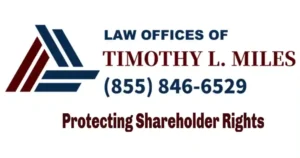Introduction to the Bitfarms Class Action Lawsuit

The Bitfarms class action lawsuit has emerged as a significant legal development for investors who acquired shares of Bitfarms Ltd. (NASDAQ: BITF) during a specified period. This lawsuit, officially titled Olympio v. Bitfarms Ltd., No. 25-cv-02630 (E.D.N.Y.), alleges serious violations of the Securities Exchange Act of 1934 by the company and its executives. As the case unfolds, it is crucial for affected investors to understand their rights, options, and the broader implications of this legal action.
Understanding the Bitfarms Class Action Lawsuit
Class action lawsuits serve as a powerful tool for investors who have suffered financial losses due to corporate misconduct. In the case of Bitfarms, the allegations in the Bitfarms class action lawsuit center around misleading statements and inadequate disclosures regarding the company’s financial health. Such legal actions allow individuals to band together, making it easier to pursue justice against larger entities that may otherwise be difficult to challenge.
The Class Period
The class period for the Bitfarms lawsuit spans from March 21, 2023, to December 9, 2024. Investors who purchased or acquired Bitfarms securities during this timeframe may be eligible to participate in the class action. Understanding the specific dates is essential for determining eligibility and potential claims.
The Role of the Lead Plaintiff
In class action lawsuits, a lead plaintiff is appointed to represent the interests of the entire group. This individual or entity typically has the largest financial stake in the case and is responsible for guiding the litigation process. The lead plaintiff plays a crucial role in decision-making, including selecting legal counsel and negotiating settlements.

Allegations Against Bitfarms
The allegations against Bitfarms are serious and could have significant repercussions for the company and its executives. Investors claim that Bitfarms provided misleading information regarding its financial status, which ultimately led to substantial losses when the truth was revealed.
Key Allegations
- Misleading Financial Statements: The lawsuit alleges that Bitfarms issued false or misleading statements about its financial health, which misled investors about the company’s performance.
- Inadequate Internal Controls: It is claimed that Bitfarms maintained deficient internal controls over financial reporting, leading to inaccuracies in its financial disclosures.
- Misclassification of Cash Flows: The company allegedly misclassified proceeds from the sale of digital assets, categorizing them incorrectly as cash flow from operating activities rather than investing activities.
- Failure to Disclose Material Weaknesses: The Bitfarms class action lawsuit contends that Bitfarms overstated its ability to remediate material weaknesses in its internal controls, which further misled investors.
Impact on Investors
The ramifications of these allegations are profound. If proven true, they could lead to significant financial penalties for Bitfarms and its executives, as well as a potential restatement of financial results. Investors who suffered losses during the class period may be entitled to compensation.
The Legal Framework: Securities Fraud
Securities fraud encompasses a range of deceptive practices that mislead investors about a company’s financial health. Understanding the legal framework surrounding securities fraud is essential for affected investors.
Key Elements of Securities Fraud

To prevail in a securities fraud case, plaintiffs must typically establish several key elements:
- Material Misrepresentation or Omission: Investors must demonstrate that the company made false statements or failed to disclose critical information.
- Scienter: This refers to the intent or knowledge of wrongdoing by the company or its executives.
- Connection to Securities Transaction: There must be a direct link between the fraudulent conduct and the securities transaction.
- Reliance: Investors must show that they relied on the misleading information when making investment decisions.
- Economic Loss: Plaintiffs must prove that they suffered financial losses as a result of the alleged fraud.
- Loss Causation: There must be a causal connection between the fraudulent conduct and the losses incurred.
The Lead Plaintiff Process
The Private Securities Litigation Reform Act (PSLRA) outlines the process for appointing a lead plaintiff in securities class action lawsuits. This process is designed to ensure that the interests of investors are adequately represented.
Steps in the Lead Plaintiff Process
- Filing the Complaint: The first step involves filing a complaint with the court, which outlines the allegations against the defendants.
- Notice to Investors: Once the complaint is filed, a notice is published to inform potential class members about the Bitfarms class action lawsuit and their rights.
- Motion for Lead Plaintiff: Interested investors must file a motion to be appointed as lead plaintiff within a specified timeframe, typically 60 days after the notice is published.
- Appointment of Lead Plaintiff: The court reviews the motions and appoints the lead plaintiff based on factors such as financial interest and ability to represent the class.
Benefits of Being a Lead Plaintiff
Serving as a lead plaintiff comes with several advantages, including:
- Negotiating Power: The lead plaintiff can negotiate more favorable attorney fees and settlement terms.
- Control Over Litigation: They have a say in the direction of the case and can influence key decisions.
- Reduced Financial Risk: Legal costs are typically covered by lead counsel, who only gets paid if the case is successful.

The Importance of Evidence
In any class action lawsuit, evidence plays a critical role in substantiating claims. For investors involved in the Bitfarms lawsuit, gathering and organizing relevant evidence is essential.
Types of Evidence to Collect
- Financial Statements: Collect all financial documents, including balance sheets, income statements, and cash flow statements.
- Communications: Gather emails, press releases, and other communications that may demonstrate misleading statements or omissions.
- Investment Records: Maintain detailed records of your investment history, including purchase dates, quantities, and prices.
Organizing Evidence
Organizing evidence systematically can strengthen your position in the lawsuit. Consider creating a comprehensive file that categorizes documents by type and date for easy retrieval.
Monitoring Case Developments
Staying informed about the progress of the Bitfarms class action lawsuit is crucial for affected investors. As the case evolves, new information can significantly impact strategies and potential outcomes.
Key Developments to Watch
- Court Rulings: Pay attention to any rulings made by the court that may affect the case’s trajectory.
- Settlement Negotiations: Monitor any discussions regarding potential settlements, as these can provide insight into the case’s resolution.
- Regulatory Changes: Stay updated on any changes in regulations that may impact the Bitfarms class action lawsuit or the company.
Opting Out of the Bitfarms class action lawsuit
Investors have the option to opt out of the class action Bitfarms lawsuit if they believe they can achieve a better outcome through individual litigation. This decision should be made carefully, considering the potential benefits and drawbacks.
Reasons to Opt Out
- Unique Damages: If you have suffered unique damages that may not be adequately addressed in the class action, opting out may be beneficial.
- Control Over Legal Strategy: Individual litigation allows for greater control over your legal strategy and settlement negotiations.
Challenges of Opting Out
While opting out can offer advantages, it also comes with challenges, including:
- Higher Costs: Individual litigation can be more expensive, as legal fees are not shared among class members.
- Uncertain Outcomes: The outcome of individual lawsuits can be unpredictable, and there is a risk of receiving less favorable damages.
Conclusion
TheBitfarms class action lawsuit represents a critical juncture for investors who have suffered losses due to alleged corporate misconduct. Understanding the intricacies of the legal process, the allegations at hand, and the options available is essential for affected investors. By staying informed and actively participating in the litigation process, investors can advocate for their rights and seek the compensation they deserve.
If you believe you are eligible to participate in the Bitfarms class action lawsuit or have questions about your rights as an investor, please contact attorney Timothy L. Miles of the Law Offices of Timothy L. Miles, at no cost, by calling 855/846-6529 or via e-mail at [email protected].
Contact Timothy L. Miles Today About an Bitfarms Class Action Lawsuit
If you suffered substantial losses and wish to serve as lead plaintiff of the Bitfarms class action lawsuit, or just have general questions about you rights as a shareholder, please contact attorney Timothy L. Miles of the Law Offices of Timothy L. Miles, at no cost, by calling 855/846-6529 or via e-mail at [email protected]. (24/7/365).
Timothy L. Miles, Esq.
Law Offices of Timothy L. Miles
Tapestry at Brentwood Town Center
300 Centerview Dr. #247
Mailbox #1091
Brentwood,TN 37027
Phone: (855) Tim-MLaw (855-846-6529)
Email: [email protected]
Website: www.classactionlawyertn.com
Facebook Linkedin Pinterest youtube



